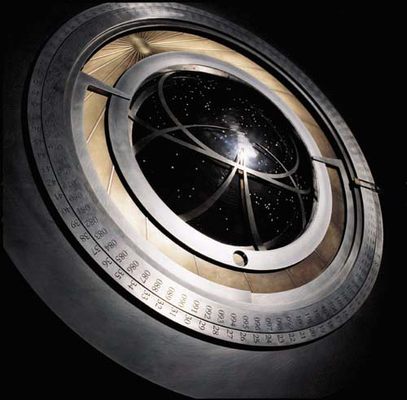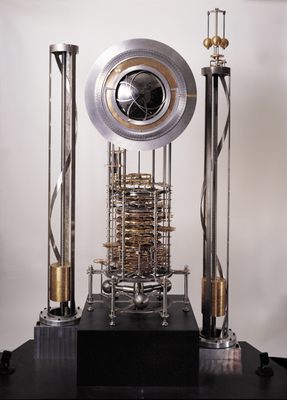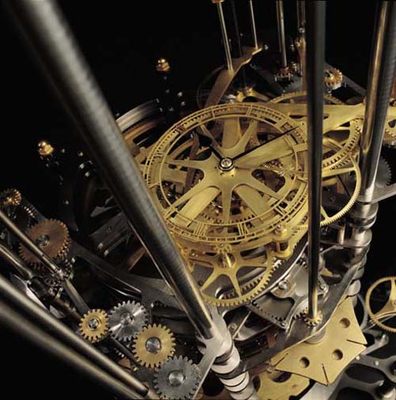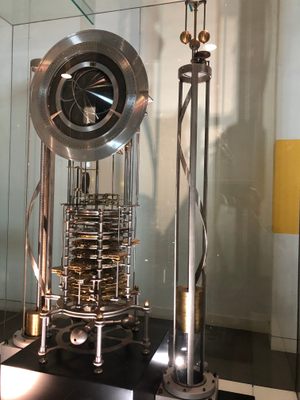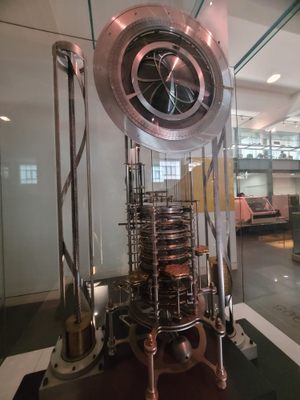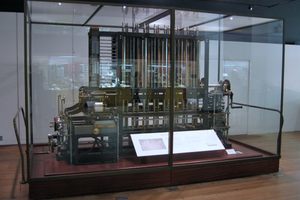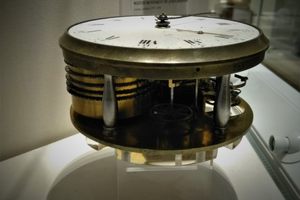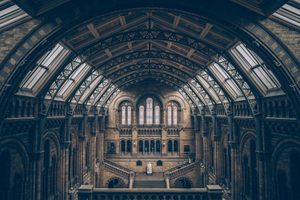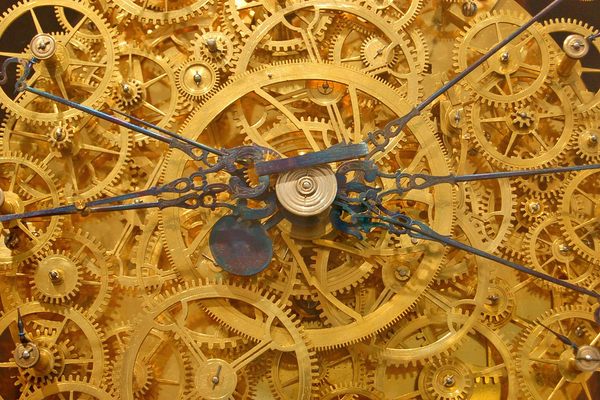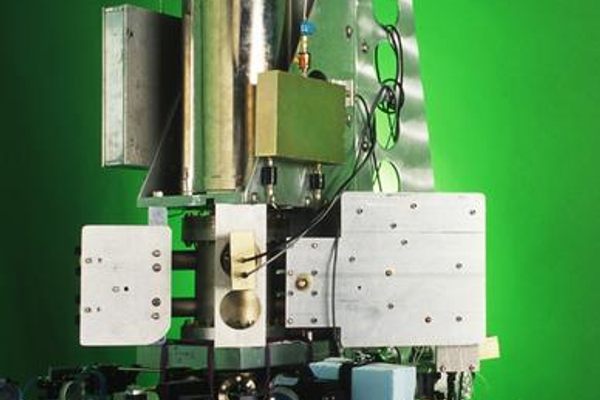About
Sitting in the Science Museum of London is the first prototype for the 10,000 Year Clock, also known as the Clock of the Long Now, to be built in a a remote mountain site near Ely, Nevada.
Planned as an art/engineering work of heroic scale inside a Nevada mountain, the 10,000 Year Clock is meant to embody and inspire long-term thinking. The first working prototype of this 10,000 Year Clock was completed in 1999 and is currently on loan to the Science Museum of London, and can be seen as the final piece in the “Making of the Modern World” exhibit. The prototype began to tick on December 31, 1999 after an almost three year research and design effort.
Power comes from the two helical weight drives on either side of the Clock. The timing for the Clock is generated both by a torsional pendulum, with a one minute period, and by a Solar Synchronizer that re-calibrates the Clock to solar noon on any sunny day. The display on the Clock is made of two elements — the Serial Bit Adders and the dials. The Adders convert the timing generated from the pendulum, using their binary mechanical system, to changes in the Clock's dials. The six dials represent the year, century, horizons, sun position, lunar phase, and the stars of the night sky.
It was determined that the site for the monument sized Clock had to be remote enough to require some serious travel, and was a place that was itself mythic. The creators of the clock also wanted a site that would allow the Clock to be built underground, in solid rock, but still have amazing views. This site was found, in eastern Nevada, adjacent to the Great Basin National Park.
Since purchasing the site in 1999, the Long Now Foundation has made dozens of research trips to the site. The roughly 250 acres of private land stretches over a vertical mile from the valley floor at 6,000 feet, to the 11,600 foot peak of Mt. Washington. The Foundation is studying the site to determine the best way to design the experience of accessing it, and working with mining engineers and other experts to determine how best to proceed with the underground work. While there is no date for completion set yet, you can follow the project at longnow.org and see the prototype at the Science Museum of London.
In conjunction with the Long Now Foundation. Modified from original text by Stewart Brand at the Long Now Blog.
Related Tags
Know Before You Go
The clock can be found on the ground floor in the Making the Modern World gallery. Through the Exploring Space gallery. It's situated at the end on the central right side.
Community Contributors
Added By
Published
August 18, 2013
